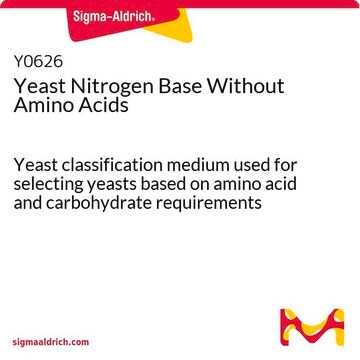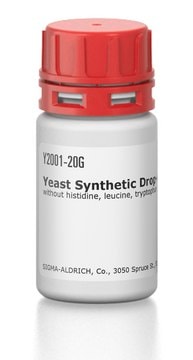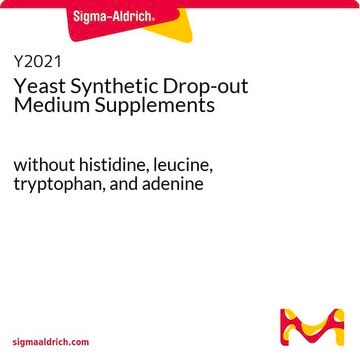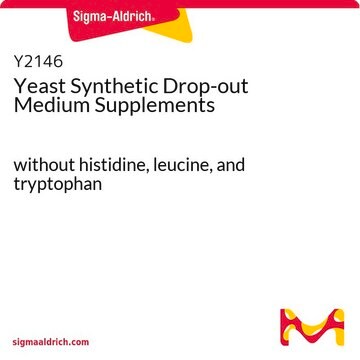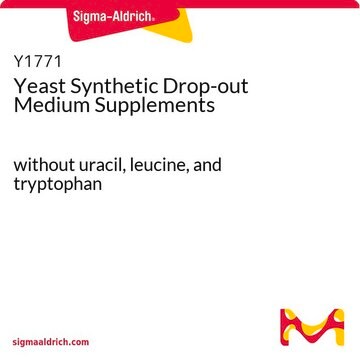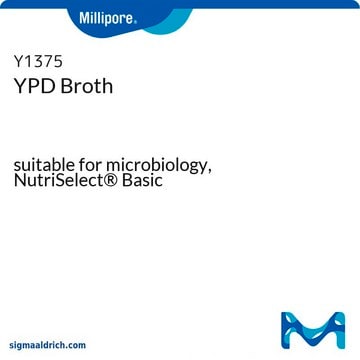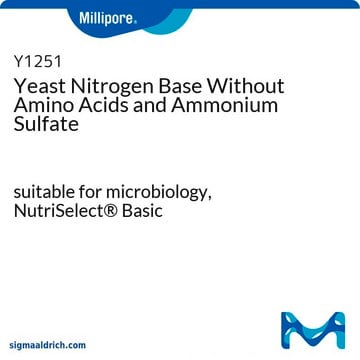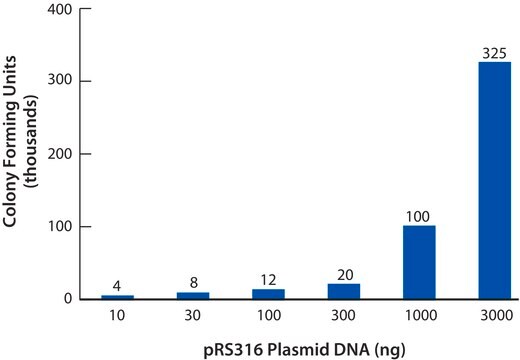Y1376
Yeast Synthetic Drop-out Medium Supplements
without leucine
Synonym(s):
Synthetic Yeast Growth Media
About This Item
Recommended Products
Looking for similar products? Visit Product Comparison Guide
Related Categories
Application
Components
Amino acids: All standard amino acids except for leucine. All the amino acids are present at a concentration of 76 mg/L.
Other nutrients: Adenine (18 mg/L), inositol (76 mg/L), p-aminobenzoic acid (8 mg/L), uracil (76 mg/L).
Other Notes
Quantity
Storage Class
13 - Non Combustible Solids
wgk_germany
WGK 1
flash_point_f
Not applicable
flash_point_c
Not applicable
ppe
Eyeshields, Gloves, type N95 (US)
Choose from one of the most recent versions:
Certificates of Analysis (COA)
Don't see the Right Version?
If you require a particular version, you can look up a specific certificate by the Lot or Batch number.
Already Own This Product?
Find documentation for the products that you have recently purchased in the Document Library.
Customers Also Viewed
Articles
Genetic engineering enables large-scale expression and isolation of recombinant proteins for research purposes.
Protocols
Magnetic-plasmonic nanoparticles: Synthesis and application of Ag/FeCo/Ag nanobeads for cellular organelle imaging and isolation.
Yeast culture techniques: Model systems for eukaryotic studies with liquid media or agar plate growth.
Our team of scientists has experience in all areas of research including Life Science, Material Science, Chemical Synthesis, Chromatography, Analytical and many others.
Contact Technical Service